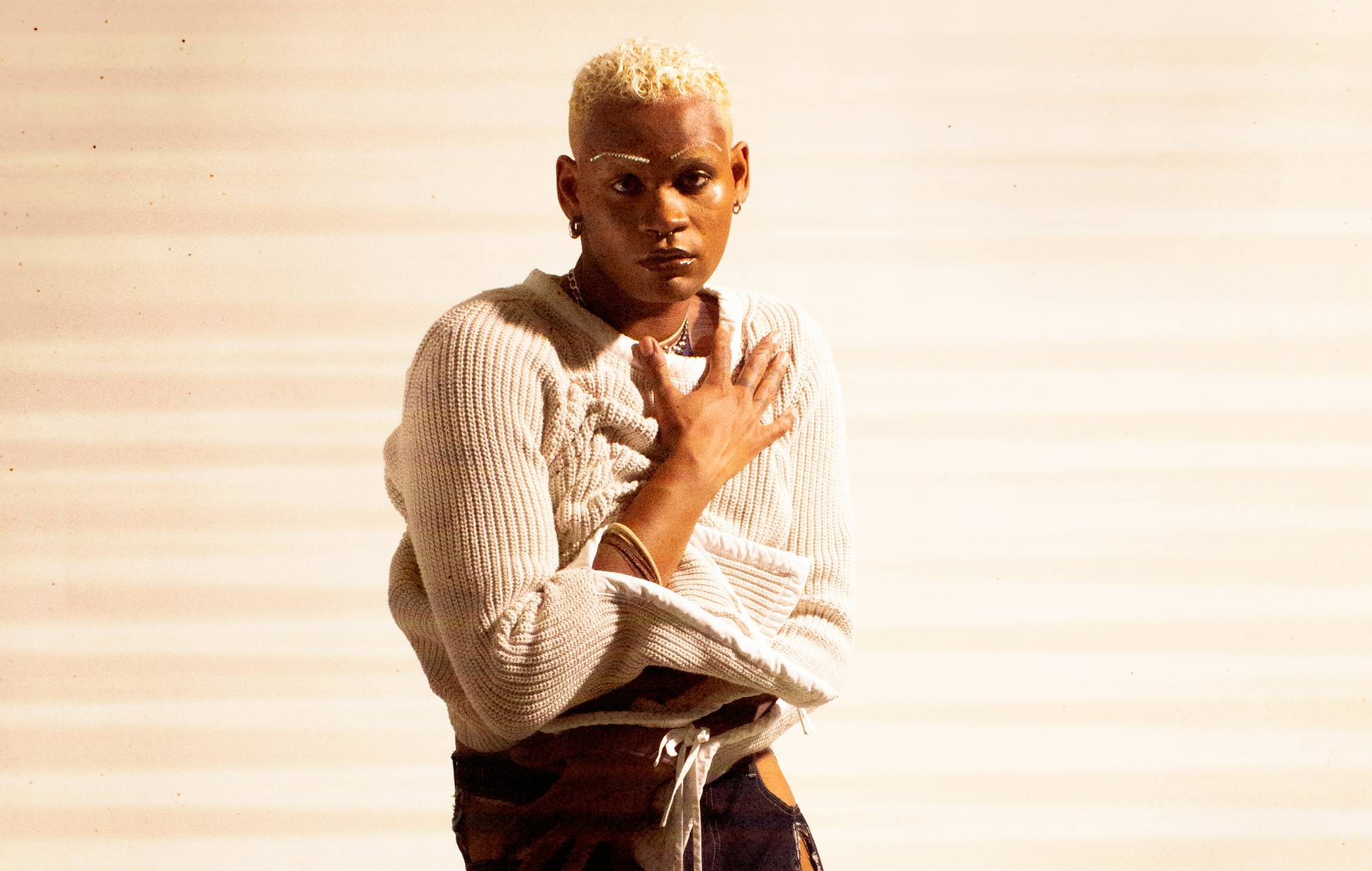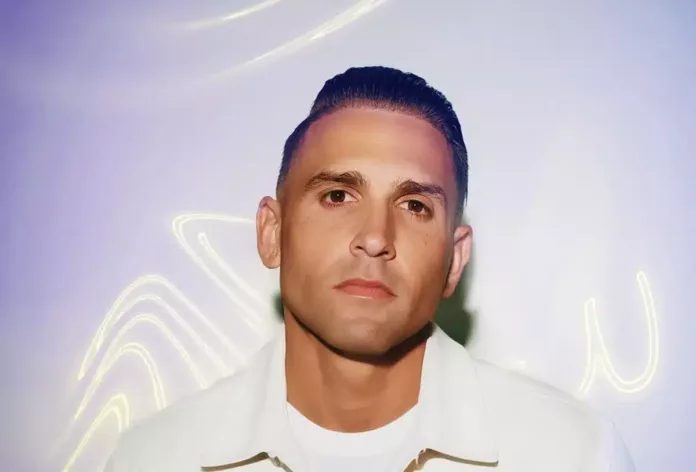
Infinite Coles: the unifying force between R&B and ballroom culture
Being a descendent of hip-hop royalty might be daunting for those who want to follow in the musical footsteps of their parents. Add to that the prospect of growing up in the streets of New York, the very place where hip-hop came alive, and the pressure could be too much to handle.
Infinite Coles, however, feels no such stress. He may be the son of Wu-Tang Clan’s Ghostface Killah, but his own blossoming music career – not to mention his work as an actor, model, dancer and artist – is in no danger of being overshadowed by his father’s rich legacy any time soon. Coles was first tapped to feature on XL Records co-founder Richard Russell‘s ‘Everything Is Recorded’ project back in 2017 before subsequently guesting on releases by Joy Orbison and Mella Dee – but now he’s branching out on his own.
Coles’ debut EP ‘Destiny’ (named after his late twin sister) sees him bridge the gap between his queerness and the oozing sultriness of alternative R&B. His whimsical sound would certainly feel at home within New York’s ballroom culture (the underground nightlife scene that helped birth the notorious GHE20G0TH1K dance party), a proud community where Coles learned to finally embrace his homosexuality after years of suppressing it.
With glowing endorsements from the likes of Princess Nokia, Sampha and Wiki (the latter two both feature on ‘Destiny’), Coles’ idiosyncratic sound is one you’ll want to jump on now before the rest of the world rightly sits up and takes notice. We spoke to Coles about crafting his sound, his famous father and why he feels “honoured” to be a part of the LGBTQIA+ community.
NME: Did you always want to be involved in the world of music?
Infinite Coles: “Growing up I was so shy, so nervous, and then the confidence came out of nowhere. But I knew I wanted to do music, so I had to either stab that shyness in the back or just don’t do music. Now that it’s all happening I’m grateful, but, at the same time, I’m so nervous and scared. It feels like a lot.”
What do you hope people will take away from listening to ‘Destiny’?
“I didn’t know what people were going to get from the project. I’m in this state where I’m still trying to find a certain sound for myself: I like to dance, I like to vogue. So I didn’t know what kind of direction I was trying to go for. But before I heard any house music or vogue dance music, I grew up listening to a whole bunch of R&B like Maxwell, Brian McKnight, so that’s what I’ve always wanted to do.
“I’m not a big fan of all of the songs on the project, but I do at least love four or five of them. The first and second songs are my least favourite. I do not like them. Why [my management] made me put the first and second songs on the project when I didn’t even like those two songs at all… But they told me that it was a different sound: like, London and America are two different types of sounds. So I’m like, ‘OK, whatever’. Maybe he’s right and everyone in London would love the songs.”
What’s it been like developing your sound as a solo artist?
“After I accepted myself things started knocking at the door: I started finding my chosen family and they introduced me to the ballroom style. From that moment I heard this new type of music, I fell in love. And now I want to vogue, I want to dance. So basically, I wanted to make this project sound very much like ballroom, dance-y pop, but it sounds nothing like that at all. I think I found a certain sound for myself that works, which is like R&B you can play in a ballroom.”
Tell us about your twin sister, Destiny, who inspired the title of your EP.
“I had a twin called Destiny, but she passed away when we were kids. I always say I took part of her when she died: that’s why I’m this whole femme queen. I’m very much masculine and feminine at the same time, and I feel like a lot of my femininity comes from her. I guess I’m two people in one.”

Is it annoying being introduced as Ghostface Killah’s son?
“I try my hardest to keep this life and that life separate. I feel like I’m talented enough for people to just love me for me and what I can bring to the table without being attached to him. But I never mind the questions about him because, clearly, he is a part of me. So I sometimes expect that question to come up at least one time in the interview.”
What is it like being related to someone who is hip-hop royalty, and to then not go down that particular route with your own music?
“To be honest, I don’t really think anyone expected me to be like [Ghostface] and rap or anything like that. But everyone knew that I wanted to sing from a young age. It was just about the insecurity within myself that I had to get rid of. But I do know that everyone was expecting me to act a certain way. A lot of insecurities had sunk in at that moment, because I wanted to be a singer and do it how I wanted to do it, but I felt like I had to be a little bit more masculine to be accepted. I feel like it’s fab that I’m doing something totally different. I have a whole bunch of other siblings that are boys, and they rap. [Ghostface] could have them be over here, and I’ll be singing it down. I’m the outsider, and I’m OK with that.”
Why is ballroom so important to you?
“I want to make people dance. I want to bring my ballroom family and that ballroom sound to a different light. We’ve been so underground this whole entire time – which is fine because the best things should be underground – but people can’t try to take it from me there, because I feel like the ballroom scene should be for my community. You now have Teyana Taylor using [ballroom], you had Madonna using it at one point. And, to be honest, they all did a good job – but I feel like it needs to come from someone who actually understands the culture. Madonna doesn’t vogue. Teyana Taylor doesn’t actually vogue. It’s my lifestyle, that’s where I’m from. So it should come from someone who actually understands and speaks the language. And I think I found a certain sound that fits for me to expand that.”

How important is it for you to be a part of the LGBTQIA+ community?
“I’m honoured and proud to be a part of this community, girl! I’ve come a long fucking way. I was in a shelter literally three months ago for nine months. I recorded this [‘Destiny’] EP while I was in a shelter. I saw a dead body in the shelter on the staircase. A lot has happened.
“But, let me tell you, I’ve learned a lot in these past nine months. I’ve learned to appreciate the negativity. That sounds so negative, but I mean, in other words, I just learned to appreciate the bad and the good. We always appreciate the good, and it’s easy to appreciate the good things that are happening in life – and some motherfuckers don’t appreciate the good things that are happening in life! But we also have to remember to appreciate the bad. Being in the shelter was so horrible, but I definitely appreciated being in there because at the same time I’ve learned how to be a little bit more patient. I’ve learned how to pray more, and I’ve learned how to have hope and belief in myself that, after this is done, I’m going to be good. Now I’m Infinite Coles.”
How ambitious are you?
“I just want to take care of my family. I feel like my mum deserves more than what she’s ever gotten in life, and I just want to save her from all the negative energy that’s been fed to her. I just want to give my mum and my sister what they deserve. I don’t get along with my father and sister, but I do know we all deserve more than we ever got in life. I don’t want my mum to be in and out of shelters. I would like to give her her own house.
“Career-wise, I just don’t know. Everybody wants to be a star, they want to be the next Beyoncé: but I just want to be Infinite Coles. I just want to be happy doing music, performing for everyone – but also buy my mom that house.”
Infinite Coles’ debut EP ‘Destiny’ is out now. He’ll perform live at Stone Nest in London on Thursday (November 25)



